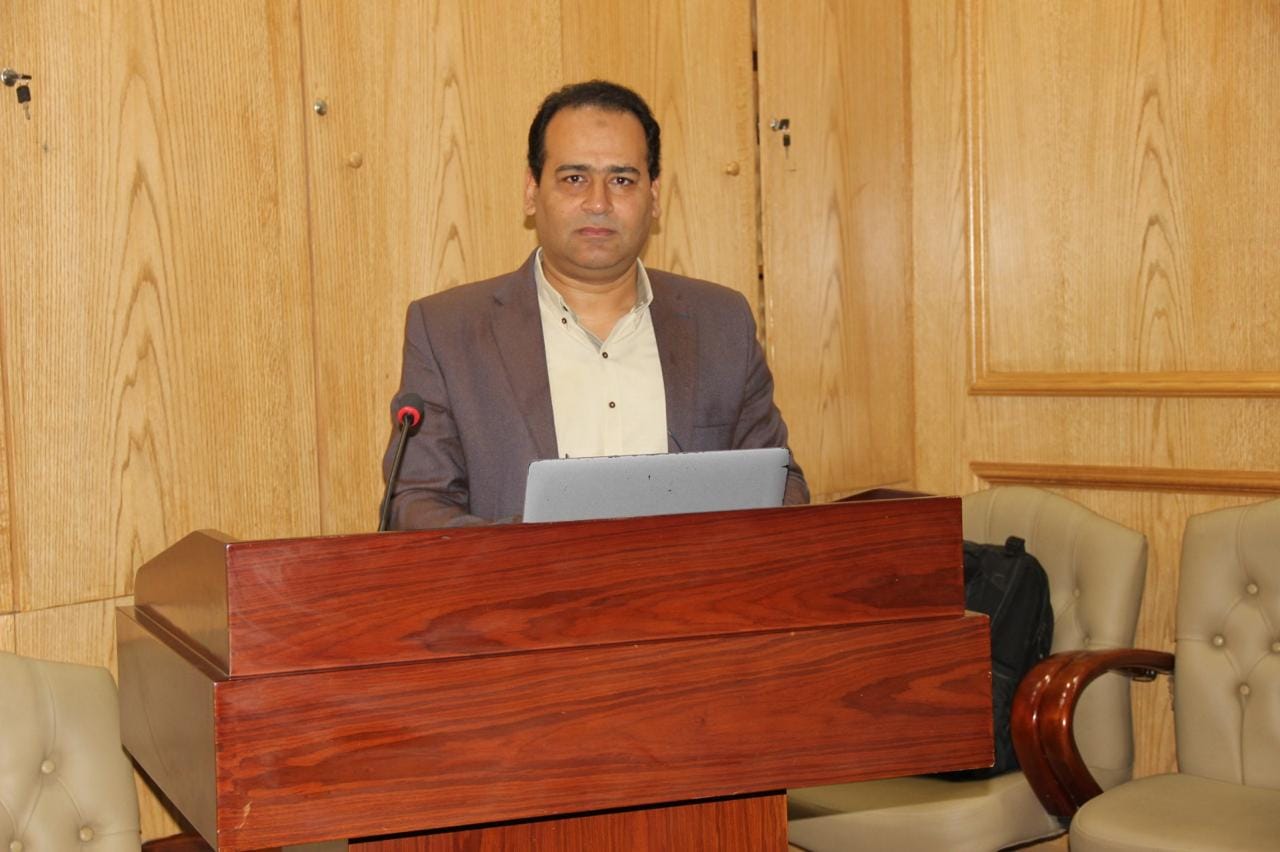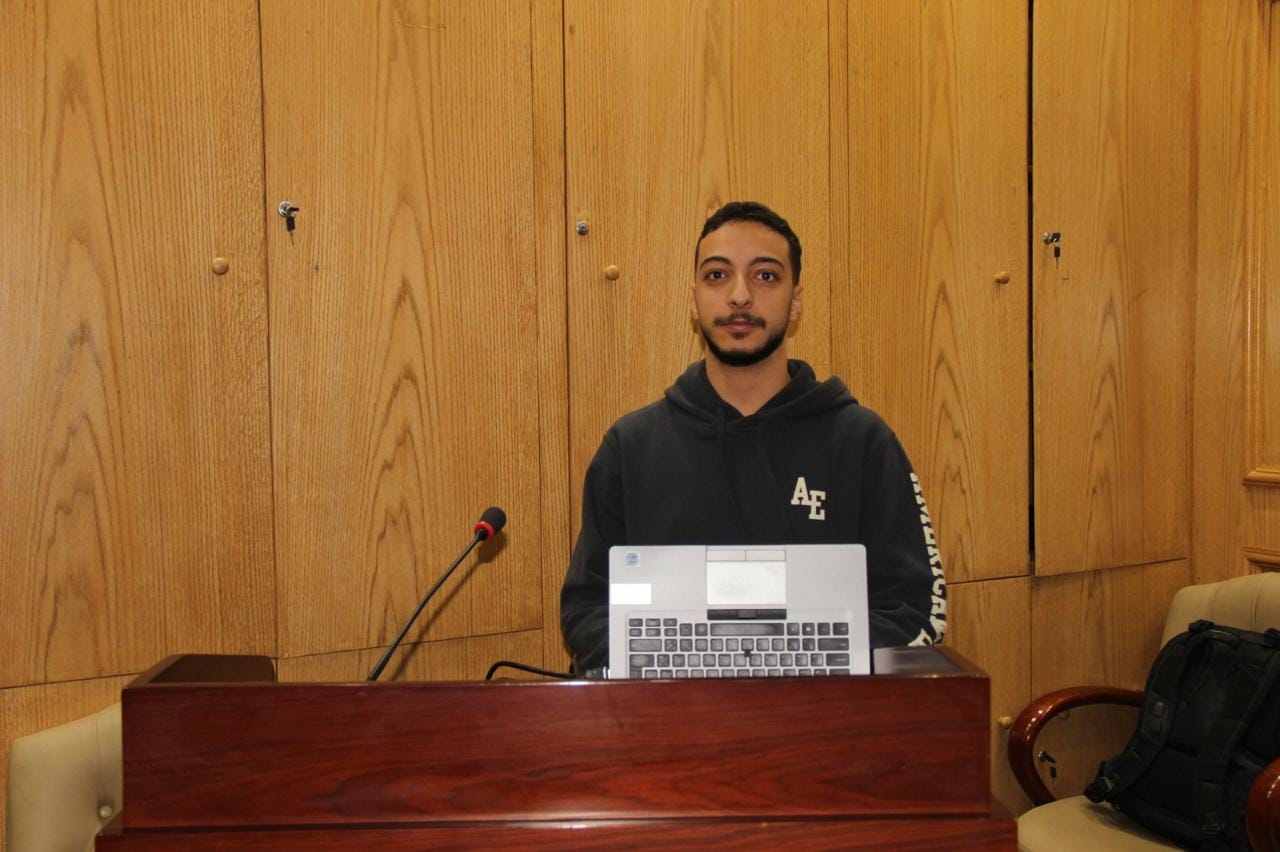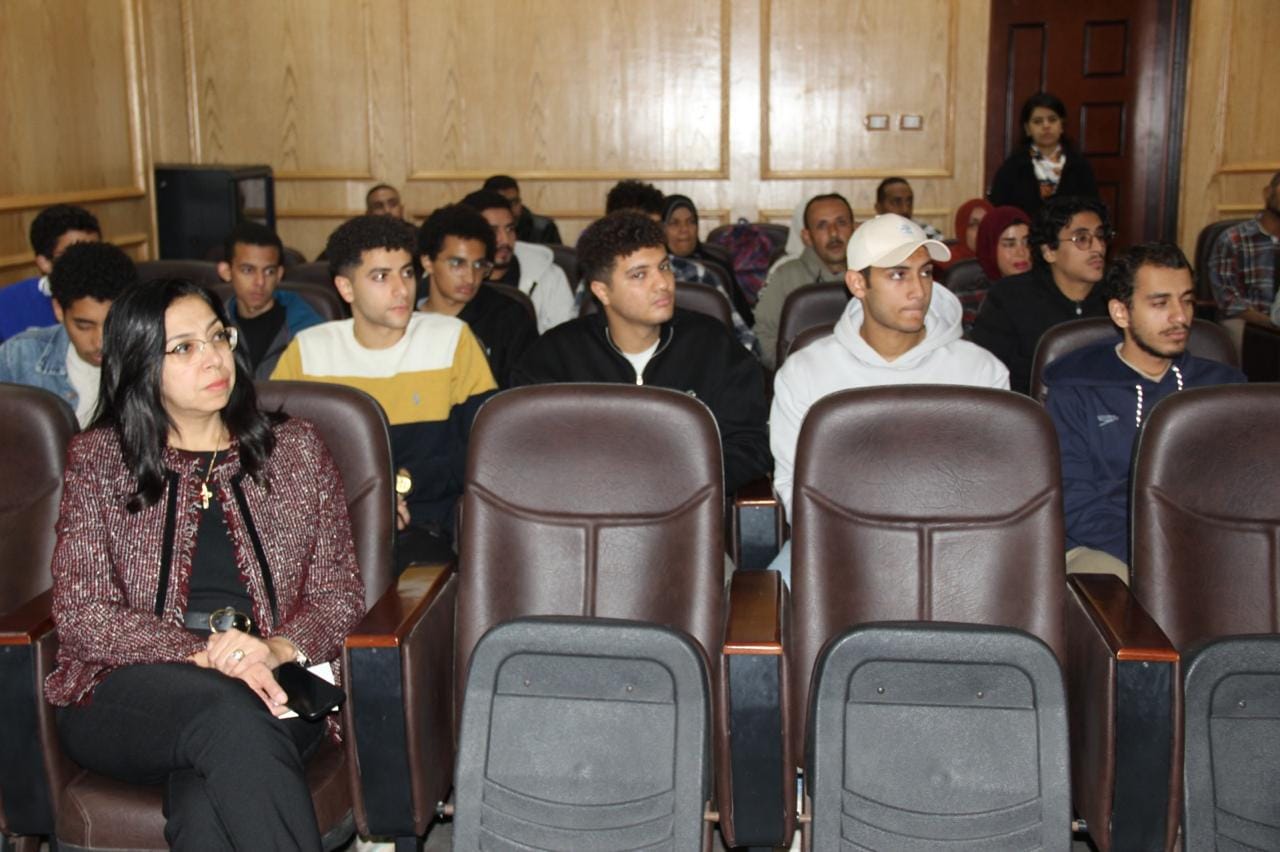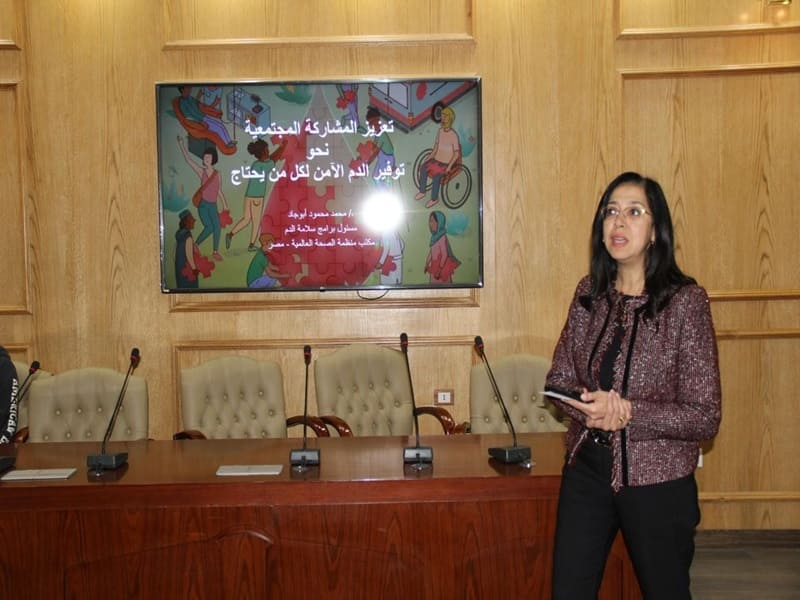The Faculty of Pharmacy hosts the awareness symposium "For Blood Donation" as part of the "Shoryan El-Ataa" initiative
As part of a series of awareness symposiums organized by Ain Shams University in collaboration with the "Egypt, Shoryan El-Ataa " Association to promote community participation in providing safe blood for those in need, under the patronage of Prof. Mohamed Diaa Zain El-Abedeen, President of Ain Shams University, and Prof. Ghada Farouk, Vice President of the University for Community Service and Environmental Development, the Faculty of Pharmacy at Ain Shams University, chaired by Prof. Amany Osama, Dean of the Faculty of Pharmacy, and under the supervision of Prof. Rola Milad, Vice Dean for Community Service and Environmental Development, hosted an awareness symposium on blood donation. The event aimed to emphasize the importance of blood donation and participation in donation campaigns, which represent a model of social solidarity and helping others. Blood donation is not just a humanitarian act, but a great community service that is rewarded.
 |
 |
 |
||
Dr. Mohamed Mahmoud Abu Jad, Blood Safety Programs Officer at the World Health Organization office in Egypt, lectured at the symposium, and reviewed the beginning of the " Shoryan El-Ataa " initiative from within the Faculty of Medicine at Ain Shams University 25 years ago, aiming to raise awareness among students about blood donation. He emphasized that blood donation is the only source of blood, and that blood transfusion and its derivatives are vital therapeutic methods without which basic and advanced healthcare services cannot be provided. These services are essential for patients with leukemia, thalassemia, and hemophilia.
He explained that safe blood is blood free from viruses, parasites, drugs, alcohol, chemicals, or any external factors that could cause harm, danger, or diseases to the person receiving the transfusion. Safe blood is essential for anyone in need, including children and adults suffering from cancer, bone marrow transplants, anemia, and kidney failure.
The symposium covered the criteria for selecting blood donors and the pre-donation questionnaire. It discussed misconceptions about blood donation and clarified the screening process conducted before donation to ensure the donor's health, as well as the tests performed to confirm the safety of the blood bag before it is transferred to the patient. Additionally, the students were provided with information on the conditions for blood donation, the steps for screening the donor before donation, post-donation tests, and advice for donors after completing the blood donation process.
The symposium also presented a detailed explanation of the benefits of blood donation, including the activation of blood circulation, enhancement of new blood cell production, and the reduction of the risk of high blood pressure, which in turn decreases the risk of strokes.


.svg)
